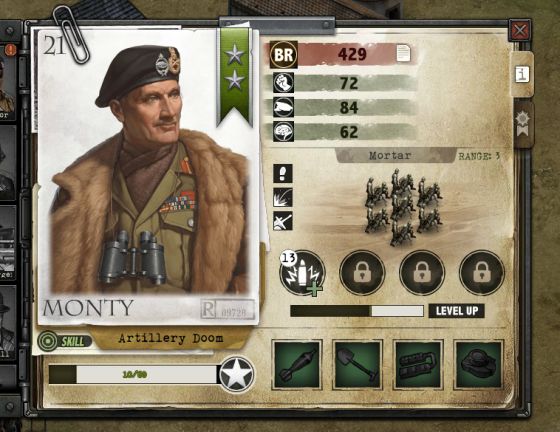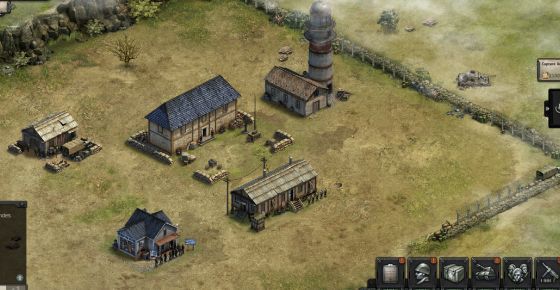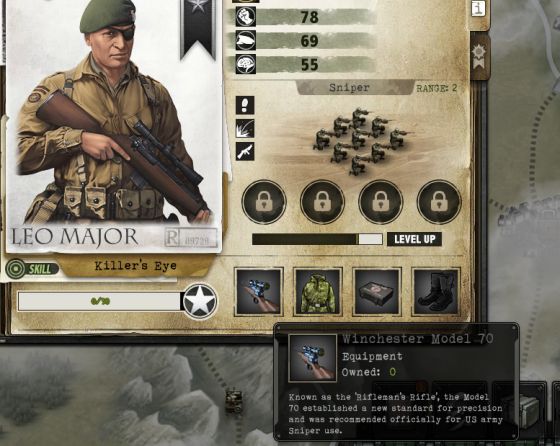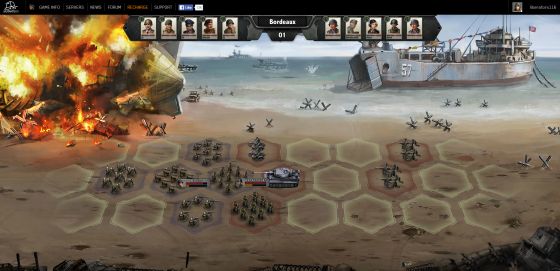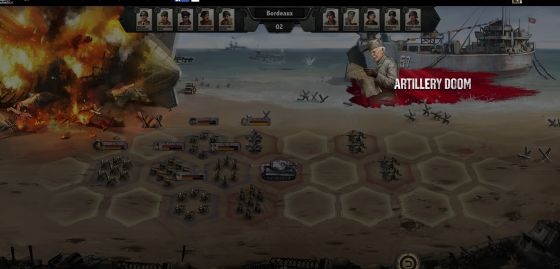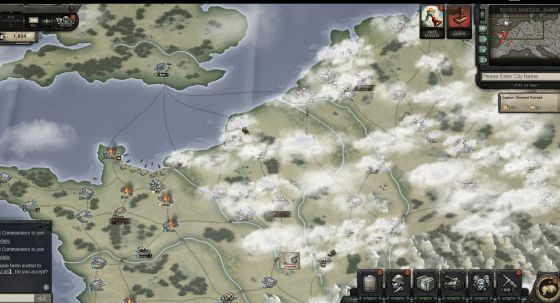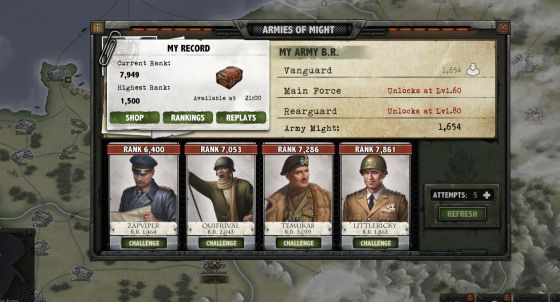Liberators is a browser-based “Strategy Multiplayer” game that is still in beta. That is at least what the developers at MutantBox tout it as, but I am skeptical about both of these labels. The game itself takes place during World War II as the player builds an army to liberate Europe, hence the name.
In terms of motif, the developers appear to have done their homework. Either that, or they binge watched Band of Brothers before they started development. The interface is built out in the browns and greens that are reminiscent of the uniforms worn by Allied soldiers and the font is the same that was used by old typewriters suggestive of old reports and documents. The various generals of both the Axis and Allied powers are tastefully done and the portraits convey the honor and legacy that these men earned.
The music is inspiring, even haunting and is evocative of John William’s Saving Private Ryan score. It alternates between a quiet, almost peaceful, melody when in the planning and management portion of the game to a fast-paced ballad of battle during combat. For a flash game, the sound effects are robust but limited to the sounds of weapons firing and vehicles moving across the battlefield.
The Liberators does a great job of reaching the aesthetic that they were obviously going for, despite their limitations as a browser-based game. This is, unfortunately, all I can say that is good about this title. General Robert H. Brown of the US Marine Corp once quipped, “Amateurs talk about tactics, but professionals study logistics.” The Liberators then is not a strategy game at all, but an administration and logistics simulator.
The player establishes a base in England in preparation for the invasion of France and subsequent liberation of Europe from beneath the heel of the Nazis. Each building generates resources and allows you to recruit generals like Patton and Montgomery, which you will use as units on the battlefield. Each General builds out your unit as each one fights the battle in their own unique way based upon their class.
Montgomery, for instance, is a mortar unit while Bradley uses light infantry. The resources you gather include Gold, Supplies, Oil, and Dogtags. Most of these are generated from buildings, earned as quest rewards, or else earned in combat. This is where the game begins to go off of the rails, since there are so many different types of general resources it begins to get difficult to keep track of all of them and what each does. In addition to each of these general resources, each unit type has four unique resources that need to be collected for upgrades that affect that unit’s combat statistics. These can also be purchased using War Bonds, yet another resource you have to keep track of.
The problem here is that there are so many different kinds of resources that you need to gather and keep track of, you almost feel like you need to be playing this game with a spreadsheet and a clipboard. The interface is laid out pretty well to help with this and there are a number of alerts present to notify you when enough resources have been gathered for upgrades, but honestly it feels extremely cluttered. In addition, there are so many resources being generated from quests, missions, buildings, and daily rations that you never want for much in the way of currency. This really makes me feel as though you are only completing missions for the sake of missions, and frankly those are the most disappointing parts of the game.
Once you have your base established, your generals selected, and your units outfitted the invasion of mainland Europe begins. The tutorial takes you through the first ten or so battles following the various beaches on D Day, though it does not seem to be all that necessary. Each battle is exactly like the others and it gets extremely repetitive. The battles take place on a grid of hexagonal squares with your units on the left side of the map, and the enemy on the right.
You place your units in these hexagons in a pattern that makes sense (Infantry up front, Mortars in the back), appoint a commander in the battle, and then push the start button. That is the extent of your involvement in the combat of this game. You push the button and the computer automates the entire combat from both sides, you have absolutely no control of the movement of your units or how they attack. This is extremely disappointing because the sound effects and the music are so engaging; being removed from the decision making is a lot like pulling up to the start line in a drag race while blasting AC/DC only to have someone else do the sprint. Each unit has these really awesome abilities like an artillery barrage, air strike, or bayonet charge that have really sharp fanfare and an intense effect on the battlefield, but the computer appears to throw them out at random.
Since you have absolutely no say in how the battle progresses, any victory is hollow. I would try to describe how defeat feels, but that has never come up. Just like with the abundance of resources, I was never able to lose. Just by progressively doing each level, mission, and upgrading your units there is absolutely no way to fail. This continues to make the victories you ‘earn’ feel more and more like a participation trophy. After you capture the beach, you begin hopping from city to city fighting the Nazis while recruiting new generals, gathering more resources, and unlocking new game modes.
Perhaps the most significant of the game modes is the PVP option. The others are all variations on the same theme, and since the gameplay is so repetitive it is not worth going into here. PVP was something I was hoping would add some variety to this game, but it appears as though all you do is randomly challenge other players who are probably not online.
This means instead that you are attacking another player’s army, controlled by the same computer you have already been fighting and defeat is still not an option. I attacked players that were higher level than me in the hope that there would be some challenge for my Army, but they crushed all that came before them. No risk. No satisfaction. No fun.
This is a disappointing game that appeared to start out strong with beautiful visuals and sound designs for a flash game, perhaps a return to form for the many World War II games left such a mark in the industry. A complicated resource management system, tedious game play, and absolutely no risk of defeat made playing this game a chore. It is still in development, so maybe things will improve by launch.
